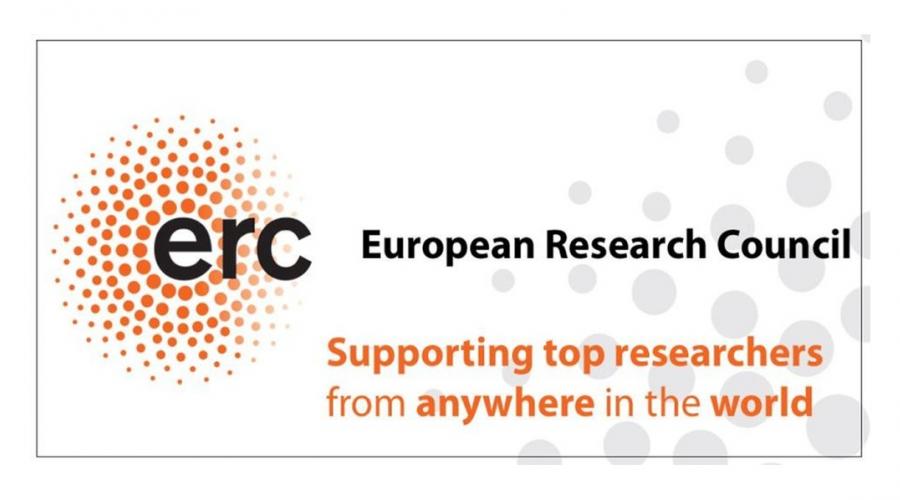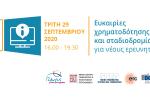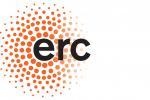
The European Research Council (ERC) announced Consolidator Grants for 329 top European researchers, seven of whom are scientists of Greek origin carrying out research at universities and research centres in Greece or abroad.
The funding, which is part of the research and innovation programme Horizon 2020, amounts to 630 million euro in total and gives grantees the chance to contribute significantly to scientific research. Those awarded will conduct their research at universities and research centres in 22 European countries, with the majority being in Britain (60), Germany (56), France (38) and Holland (25). Grants have been awarded to scientists and researchers of 39 different nationalities, including German (55), Italian (32), French (33) and British (31).
Of the 7 Greek grantees, 3 will carry out research in Greece and 4 in Europe:
• Alkistis Bonanou, National Observatory of Athens, ASSESS project (Episodic Mass Loss in the Most Massive Stars: Key to Understanding the Explosive Early Universe)
• Marinos Sariyiannis, Foundatioin for Mediterranean Studies, Foundation for Research and Technology-ITE, GHOST project (Geographies and Histories of the Ottoman Supernatural Tradition Exploring Magic, the Marvelous, and the Strange in Ottoman Mentalities)
• Konstantinos Tassis, Institute of Electronic Structure & Laser, Foundation for Research and Technology-ITE, PASIPHAE project (Overcoming the Dominant Foreground of Inflationary B-modes: Tomography of Galactic Magnetic Dust via Measurements of Starlight Polarization)
• Lambros Malafouris, Institute of Archaeology, Oxford University, HANDMADE project (Handmade: Understanding Creative Gesture in Pottery Making)
• Konstantinos Panayiotou, Mathematics, Ludwig-Maximilians-Munich, PTRCSP project (Phase Transitions in Random Constraint Satisfaction Problems)
• Ilias Papayiannou, London Business School, ORDINARY project (The Political Economy of African Development. Ethnicity, Nation, and History)
• Maria Rentetzi, University of Vienna, HRP-IAEA project (International Atomic Energy Agency in the History of Radiation Protection)
The research project proposals of the new grantees covers a wide range of topics in the Physical and Engineering Sciences, Life Sciences and Social Sciences and Humanities.
The consolidator grants, which are considered to be highly competitive, are awarded to outstanding researchers, regardless of nationality and age, who have 7-12 years of experience since completion of their PhD and show great promise. ERC evaluated 2,538 proposals of which 13% were selected with one in three grants (32%) being awarded to women. The grants are expected to create some 2,000 new positions for doctorate and post-doctorate researchers and support staff. Statistical data for the grants can be found at ERC Consolidator Grants 2017.
ERC funds cutting-edge research
ERC, which was created by the European Union in 2007, is the main European funding organisation for cutting-edge research. Every year it selects and funds the most creative researchers, whatever their nationality and age, to implement projects in Europe. It also provides Starting Grants for young researchers, Advanced Grants for the leading scientists and, from this year, it is awarding Synergy Grants for joint projects.
To date, the European Research Council has funded more than 7,500 researchers at different stages of their careers, as well as over 50,000 doctoral and post-doctoral researchers. ERC has a budget of 1.8 billion euro for 2017, which corresponds to about 1% of the total expenditure on research in the EU. For 2014-2020, its budget will be over 13 billion euro.
The National Documentation Centre (EKT), as Horizon 2020 National Contact Point for a number of individual programmes (such as ERC), supports the Greek academic, research and business communities in their participation. It covers all stages of the research project, from preparation of a proposal to implementation and exploitation of research results. EKT’s services include: Information and Advisory Services, Helpdesk, Development and Handling of informational material, Organisation of events and seminars, Partner search for joint ventures and the publication of statistical data and performance indicators.















